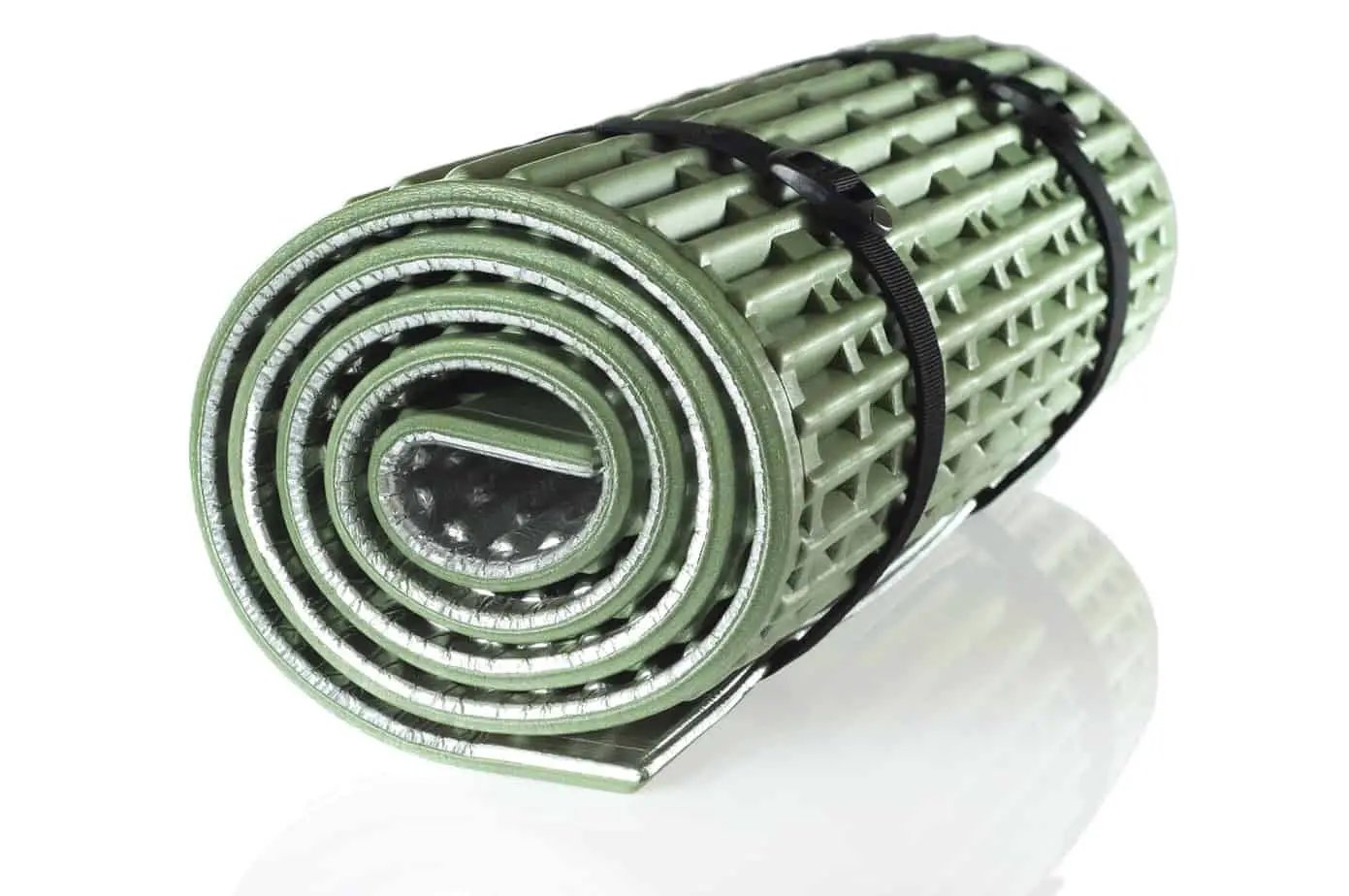
The types of sleeping pads, and which ones are best for you.
In many ways, sleeping pads are more important than sleeping bags for making sure you get a good sleep. Sleeping bags have insulation on top, and help you retain heat instead of radiating it; however, your weight will compress the sleeping bag below you, greatly reducing its ability to insulate. Sleeping pads can maintain their insulating ability, and greatly increase comfort. You will want to compare several different specs for your sleeping pad, after you have chosen the type. You will want to consider the length and shape (a backpacker may want a smaller, fitted shape for reduced weight, and a car camper may want a larger pad for increased comfort). For winter campouts, or for increased comfort, you may want to stack in inflatable pad on top of a foam pad. Here are the types of pads:
Foam Pads
These pads are a dense foam, and they insulate by trapping tiny pockets of stagnant air.
Pros: Cheap, lightweight, durable, insulators
Cons: bulky, less comfortable
Air Pads
These pads must be manually inflated. They can be sectioned off, or have different insulators. Car campers can also get air mattresses, which are much bulkier, but more comfortable.
Pros: comfortable and lightweight
Cons: poor insulators unless insulation is added, vulnerable to puncturing (though most have a repair patch)
Self Inflating Pads
Combining a foam pad and an air pad, the self insulating pad is preferred by many backpackers.
Pros: comfortable, insulator, compact
Cons: slightly more expensive, vulnerable to puncturing (most have a repair patch)

